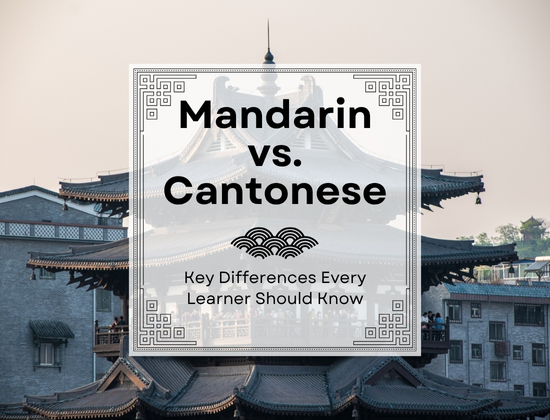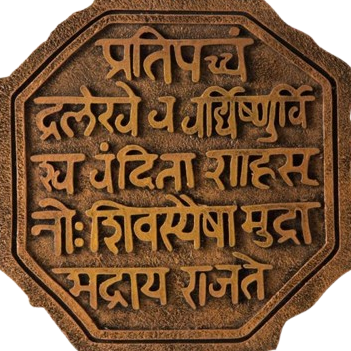
Mandarin vs Cantonese: Key Differences Every Learner Should Know
.
When learners search for a Chinese language course, one of the most common questions they ask is: Should I learn Mandarin or Cantonese? While both are major Chinese dialects, there are significant differences between Mandarin and Cantonese that every language learner should understand before choosing the right path.
At The Language Skool (TLS), we specialize in helping students navigate the beautiful complexities of languages, including Chinese. Whether you're planning to learn Mandarin online or are curious about Cantonese pronunciation, this blog will break down the essential differences between these two popular dialects.
1. Geographic Usage: Where Are They Spoken?
Mandarin is the official language of China, Taiwan, and one of the four official languages of Singapore. It is also widely spoken in Chinese communities across the globe. In fact, Mandarin boasts over 1 billion native speakers, making it the most spoken language in the world.
Cantonese, on the other hand, is primarily spoken in Hong Kong, Macau, and the Guangdong province of China. It is also prevalent among overseas Chinese communities, especially in Chinatowns in the U.S., Canada, and the U.K.
Key takeaway: If you're planning to work, study, or travel in mainland China, Mandarin is the more practical choice. For cultural or business connections in Hong Kong or parts of Southeast Asia, Cantonese could be more useful.
2. Pronunciation and Tones: Which Is Harder?
Chinese languages are tonal, which means the tone used can change a word’s meaning. Mandarin has four main tones (plus a neutral tone), while Cantonese has six to nine tones, depending on the region.
For beginners, this makes Cantonese pronunciation more challenging to master. In comparison, Mandarin tones are more consistent and easier to learn, especially with structured guidance from a professional Mandarin tutor online.
TLS Tip: Our Chinese language tutors at TLS use audio drills and interactive exercises to help learners master tones effectively—whether you're learning Mandarin or Cantonese.
3. Vocabulary and Grammar: Are They Similar?
While both dialects share roots in Classical Chinese and have similar grammatical structures, their vocabulary differs significantly in everyday speech.
For example:
-
Mandarin: “Hello” is 你好 (nǐ hǎo)
-
Cantonese: “Hello” is 你好 (néih hóu)
The characters are the same, but the pronunciation differs. Moreover, Cantonese tends to use more informal expressions and idioms that may not be found in Mandarin.
Grammar-wise, both are relatively simple compared to other languages. There are no verb conjugations, tenses, or plurals, making them attractive options for beginners.
TLS Insight: Enrolling in our Chinese language course gives you access to side-by-side comparisons of vocabulary, helping you understand the overlap and distinctions clearly.
4. Writing System: Simplified vs. Traditional Characters
Another key difference is the writing system. Mandarin, especially as used in mainland China, uses Simplified Chinese characters. Cantonese, particularly in Hong Kong, uses Traditional Chinese characters.
Simplified characters are, as the name suggests, easier to write and remember, making Mandarin a more beginner-friendly option.
TLS Hack: With TLS, you can choose to focus on either character system—or both. Our adaptive teaching method caters to your goals, whether for academic, professional, or cultural reasons.
5. Media and Pop Culture
Mandarin dominates in mainland China's media and pop culture, while Cantonese is prevalent in Hong Kong’s vibrant film and music industry. If you're a fan of Hong Kong cinema, Cantopop, or traditional opera, learning Cantonese will enhance your experience.
TLS Cultural Tip: We integrate language with culture. Our Cantonese lessons include Hong Kong movie dialogues and songs to make learning more immersive.
Conclusion: Which Should You Learn?
Choosing between Mandarin and Cantonese depends on your personal goals. If you're looking for broader communication and business opportunities, Mandarin is the way to go. If you're drawn to Hong Kong culture, Cantonese offers rich linguistic charm.
At The Language SKOOL, our experienced tutors guide you through either path with customized lesson plans, cultural immersion, and real-life practice. Whether you want to learn Mandarin online or dive into Cantonese expressions, TLS is here to help you every step of the way.
Start your Chinese learning journey today with TLS – the smarter, more fun way to master languages!












